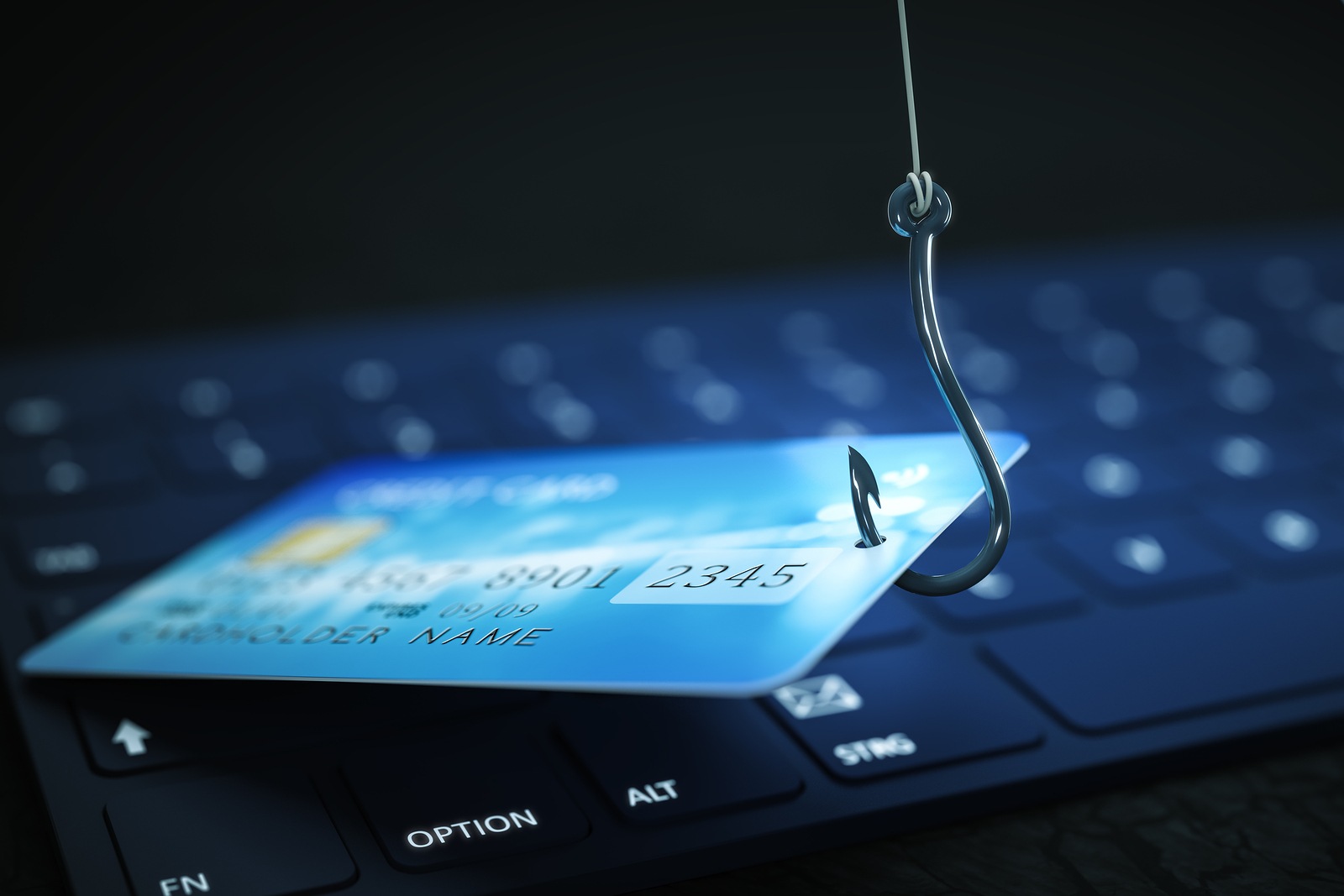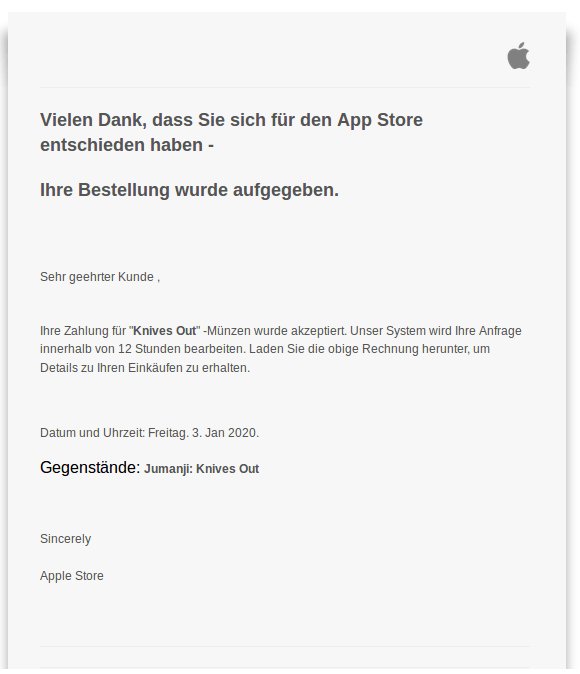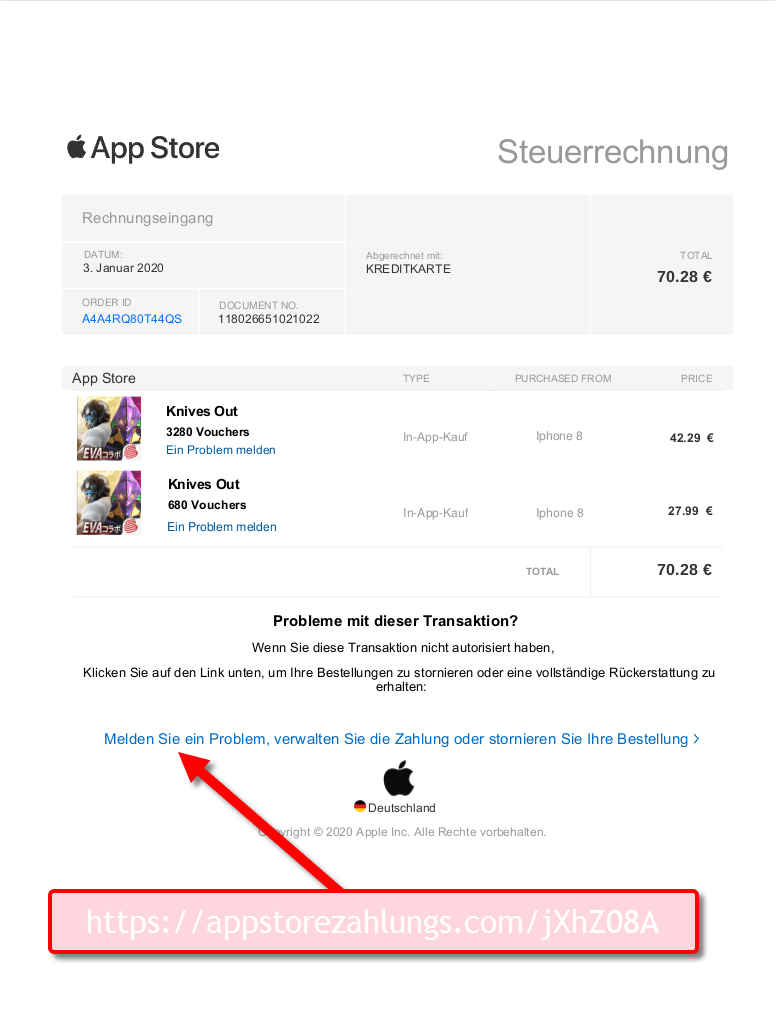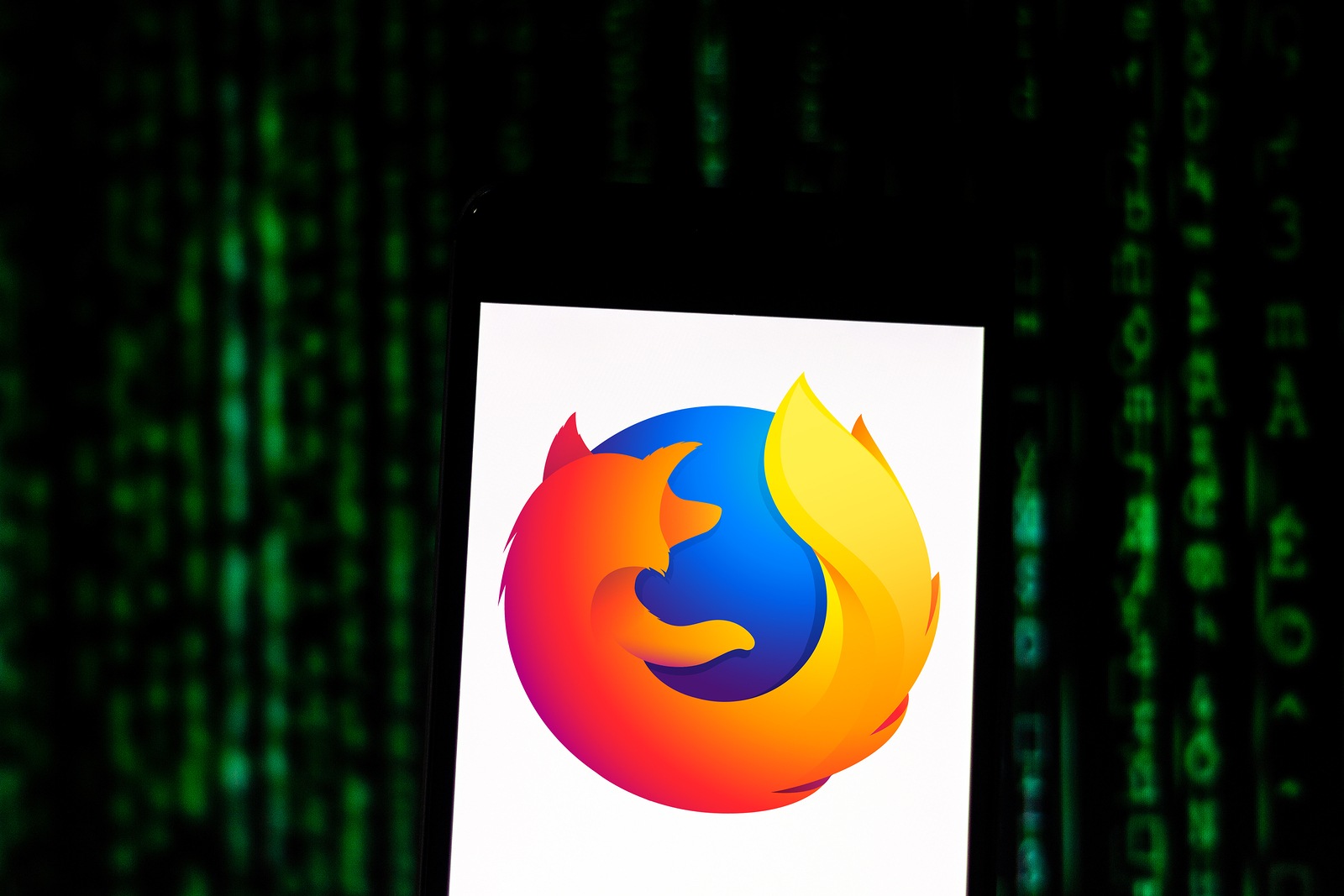It's time again to issue a public warning. The topic: phishing!
Recently, fake emails have been appearing more and more frequently. In some cases, the content even looks deceptively real, but it is not. Cyber criminals are currently trying to obtain personal data using fake App Store invoices. The Lower Saxony State Office of Criminal Investigation also warns about this on its own website. In the “Internet Crime Guide“ the police give some examples. The fake emails include order confirmations and invoices. The incident was registered in October. This is obviously a new wave of phishing, as the number of concerned Apple users is constantly increasing.
Do not under any circumstances follow the links contained!
The emails in question contain various links. If you click on one of these links, you will be taken to a fake Apple website. The user is then asked to provide some personal information (ID, etc.). In some cases, the Apple ID is also requested. Under no circumstances should you click on such links and enter your data. If you are unsure, please get a second opinion. If you receive such a fake email, you should also report it to Apple. The "reportphishing@apple.com" email is available for this purpose.
I fell for it – what now?
If you have actually fallen for such a fraudulent email, you must change the password for your Apple ID immediately. Two-factor authentication would also be a good option at this point - but most of you should have it activated, as Apple now requires the security mechanism in its current software. Those affected should also report the whole thing to the local police, according to the State Criminal Police Office. At the same time, the deposited payment method must of course also be blocked. Cards can be blocked around the clock, even in urgent cases, by calling 116 116. (Photo by magann / Bigstockphoto)
Important contacts:
- Report fake emails to Apple: reportphishing@apple.com
- Block credit card and debit card: +49 116 116







